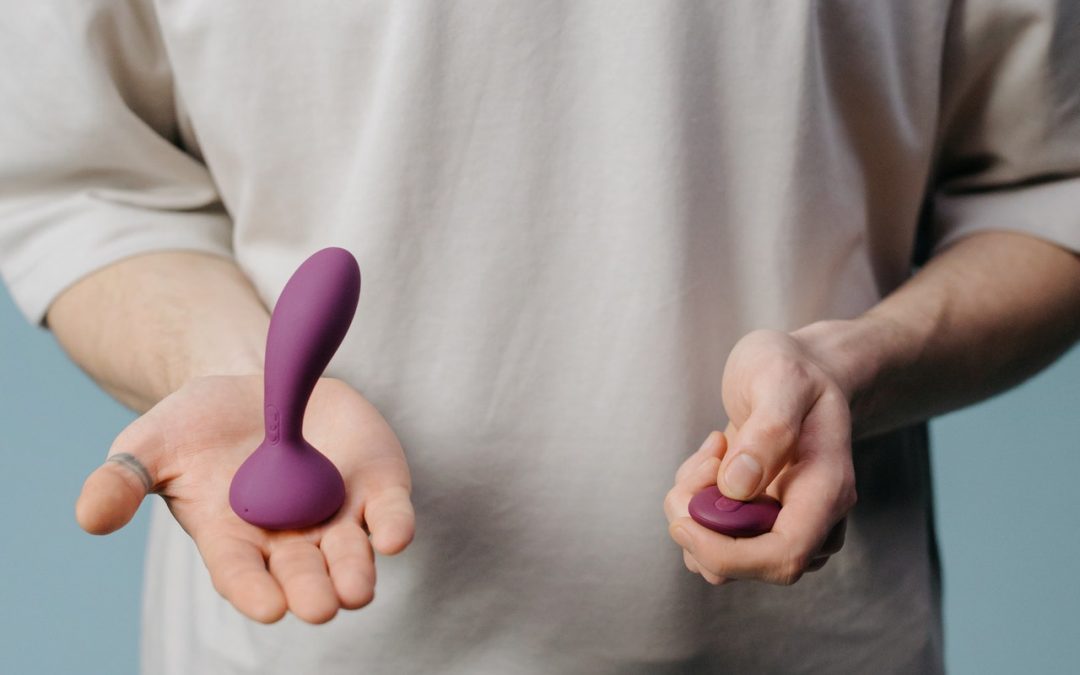Is Silicone Safe for Skin?

From everyday products, like shower curtains to the more intimate nature of sex toys, silicone is being used for just about everything. But is silicone safe for your skin and long-term use, or is there more to the material that meets the eye?
Learn more about what silicone is, if its silicone safe to use, and what other materials you should avoid if you want a literal healthy sex life.
What Is Silicone?
Skin safe silicone is used in a variety of products, because it has some excellent properties, including heat resistance, weathering resistance, electrical insulation, and low toxicity.
For example, silicone is often used in baking pans, because it doesn’t rust or corrode like many other metals do, and it doesn’t stick to food the way some other non-stick coatings do.
Silicone can also be mixed with other materials to create all sorts of different products, from rubber tubing to medical implants.
The reason skin-safe silicone has been added to so many everyday products is because of it’s low toxicity and general resistance to bacteria build-up.
The sex toy industry isn’t nearly as highly regulated as other industries in America, so there are a lot of products that won’t be generally safe to use. Silicone is one of the few materials that has proven to be safe to use as long as you’re getting the right kind of silicone.
Is Silicone Safe?
If you’re wondering if silicone is safe, then you’ll be happy to know it is absolutely safe to use on your skin, as it will not contain any toxins that could potentially leak into your system or your partner’s system.
Some skin safe silicone products will claim that they are food-grade material but unless you plan on stirring your pot with your sex toys, this label doesn’t hold much meaning.
What you really want to be looking for is a medical-grade silicone to ensure it can be safely inserted into someone’s bodily orifices without any danger of harm.
If you are using skin-safe silicone as a topical applicant, like you would in skin care, there are some risks posed for silicone but they are minor. Applying a topical silicone product can trap oils, dirt, and debris that might be resting on your skin which could potentially cause future breakouts on your skin.
Topical silicone products are also hard to get off, so although it might not become a major issue, it can still be a pain to get rid of.
What Other Materials Should You Avoid?
As stated above, the sex toy industry does not have nearly as many regulations, as would the toy industry for kids, so asking the question is silicone safe is a valid point.
Those toys have very strict regulations on the materials used, and if they are not safe for public use, they will be removed from the market altogether.
The sex toy industry doesn’t follow the same stringent regulations, so it’s more on the consumer to ensure they are getting products that don’t cause potential long-term damage.
You might not be able to pronounce it, but if you ever see phthalates on a label stay far away. Phthalates are often added to plastics, in order to make them more malleable and softer to have the same type of appearance as a material like silicone.
Low-quality sex toys will often add in a ton of phthalates, and this wouldn’t be a huge problem—depending on how intimate you would be getting with these toys.
Jelly-based toys are another material you want to avoid at all costs. This one provides a double-edged sword of harm that could cause bacteria and cancer. Jelly toys often contain rubber as the base, which is a very porous material compared to silicone. Porous materials are much harder to clean, because there are tiny holes that help breed bacteria over a period of time.
What’s even worse about jelly toys is they still add phthalates to the toy, so not only do you have a chance of increased bacteria causing infections, carcinogens could also fill your body if you continue to use the products.
The extremely sticky surface doesn’t help at all, because it is very easy for the toy to pick up debris, dirt, and other grime that could increase the chance for bacteria to form even more.
What Other Materials Are Safe to Use?
![]()
When looking for skin-safe silicone, it’s easy to think about what other products might be safe to use. When you want a toy that can keep you safe after repeated use but silicone can’t work for some reason, you can always try one of the other safer material sex toys are made out of.
Stainless steel and glass are two components that you can feel safe purchasing, because they won’t pose nearly the risk that other, more harmful, materials have for your body.
Neither of these materials are porous, which means that when you clean them you are getting all the bacteria off. They don’t have any tiny holes where the bacteria can hide and grow without you knowing.
What’s even better is you can stick them in the dishwasher on the top shelf and have your machines do the cleaning for you, so the question of is silicone safe can be answered once and for all.
You can also feel free to use any kind of lube with your stainless steel and glass toys without any fears that the lube will damage your toy after a period of time. With silicone, this is the only drawback because you want to make sure to use the proper lube material so it won’t degrade the toy.
Is Silicone Safe for Your Skin
If you’re still wondering if silicone is safe, as long as you are using medical grade silicone, you have absolutely nothing to worry about. Sex toys made from medical grade silicone pose no threat of carcinogens and will not increase the amount of bacterial compared to other materials.




